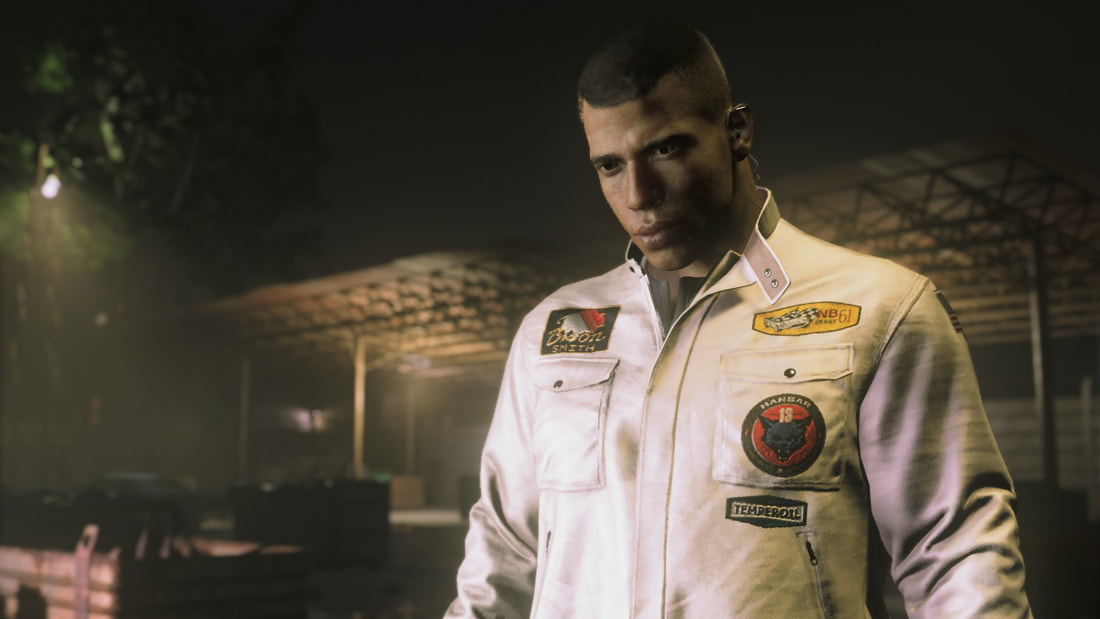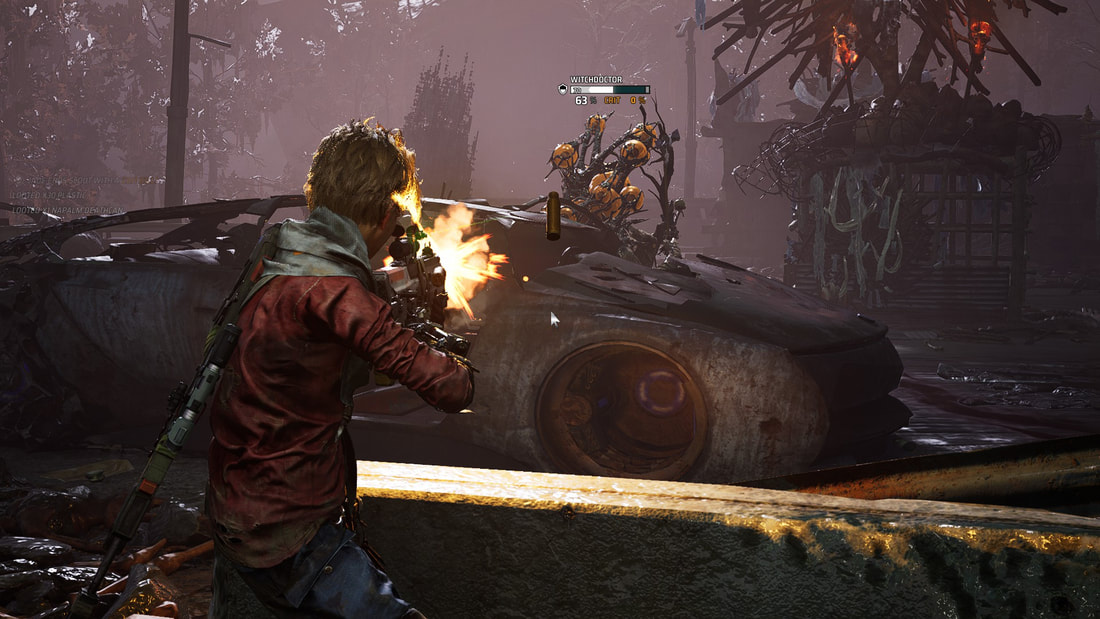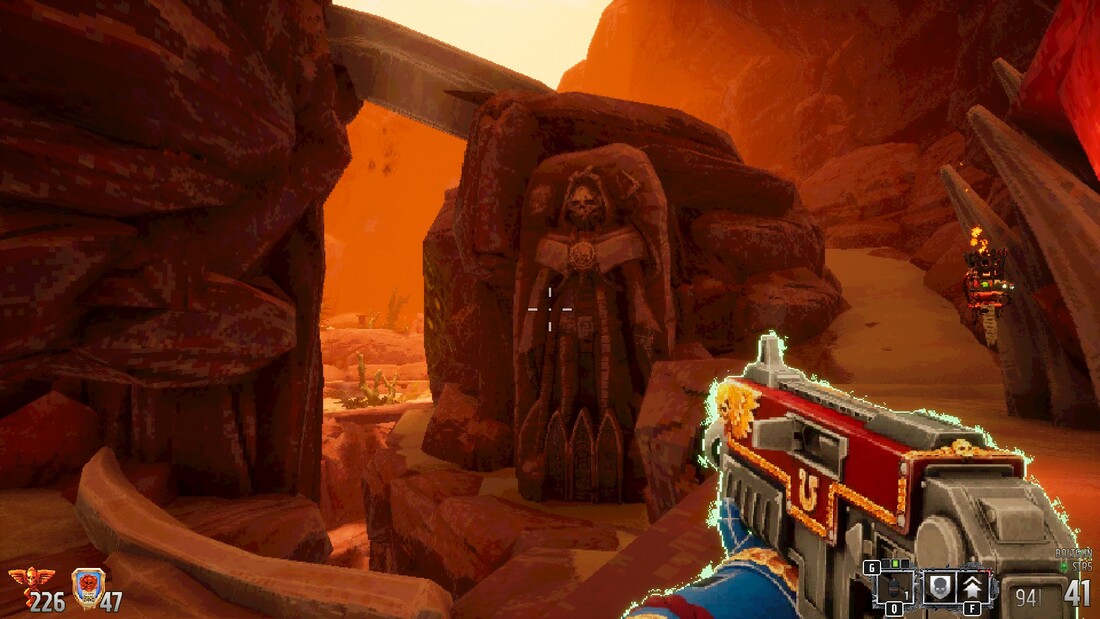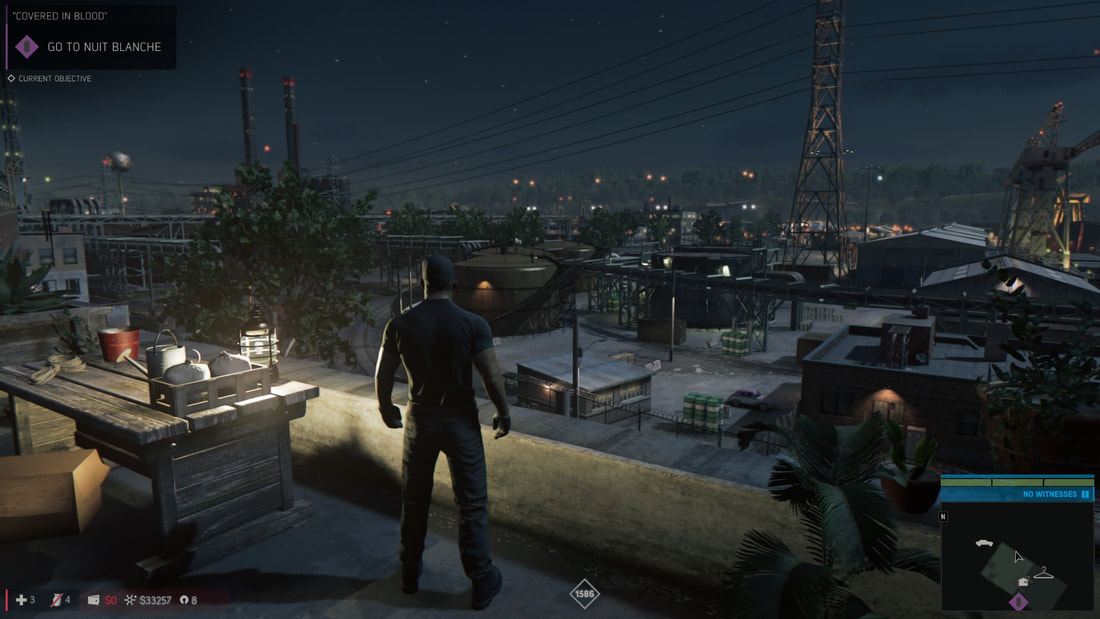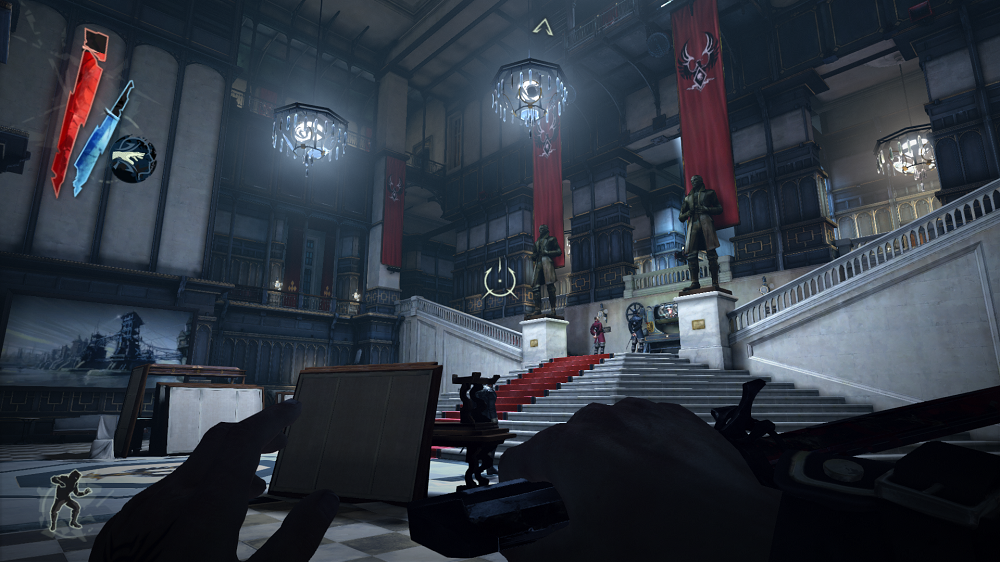|
In May, I played just four games but it was an interesting selection. For Entertainium, I reviewed two new games. Miasma Chronicles is the new release from the makers of Mutant Year Zero, and is another strong entry in the turn-based tactics genre. Warhammer 40,000: Boltgun was on my most anticipated list for 2023, but still surprised me with its quality - indie studio Auroch Digital did a fantastic job combining the 40K licence with the boomer shooter.
As ever, I also played some older games. I revisited Dishonored for the first time in a while, celebrating Arkane’s glory days at the same time as they entered their darkest hour with the disastrous recent release of Redfall. What took up the bulk of my gaming time in May, though, was the open-world deep South crime experience of Mafia III. I got completely sucked into its compelling story and open-ended gameplay, and hope to cover it more in due course.
Miasma Chronicles (2023)
Developed by The Bearded Ladies, published by 505 Games Curiously named outfit The Bearded Ladies made a big splash with Mutant Year Zero: Road to Eden in 2018, but their follow-up Corruption 2029 sank without a trace two years later (it didn’t help that the game is only available on the Epic Games Store). It’s clear that the Swedish studio is heavily invested in turn-based tactics games, and they returned to the genre for a third time with Miasma Chronicles, which I reviewed for Entertainium. Happily, it’s a return to form. In its early hours, the similarities to Mutant Year Zero are very clear - almost excessive, in fact. Over time, though, Miasma Chronicles carves out its own post-apocalyptic territory. Compared with their previous games, the Ladies have emphasised narrative much more strongly. The game improves in this respect, too - what begins as a fairly boilerplate saviour narrative accumulates some surprising twists and emotional moments. What matters most, obviously, is the turn-based battles. Miasma Chronicles does very little that will be truly new to anyone who has played XCOM 2, or Hard West II, or Warhammer 40,000: Mechanicus. Everything it does is executed well, however, and the return of the stealthy ambushes that enlivened Mutant Year Zero is very welcome. The Bearded Ladies are back on their game here, and Miasma Chronicles is an engaging trek across a ruined world, punctuated with exciting tactical battles and telling a good yarn along the way.
Warhammer 40,000: Boltgun (2023)
Developed by Auroch Digital, published by Focus Entertainment Sometimes greatness comes not from any spectacular innovation, but just from having a great idea and executing it to a high standard. Boltgun is exactly that kind of game. One of the latest entries in the retro shooter boom, it fuses that old school ‘90s gameplay and aesthetic with the grimly fertile Warhammer 40,000 license. The result is a lean, fast, brutal FPS which captures the feeling of what it would be like to be a space marine - one of the Emperor’s finest, a one-man army facing down a Chaos horde on the corrupted planet Graia. Boltgun is also a sign that exciting surprises can still happen. British developers Auroch Digital have no track record in shooters - their background is in management sims about brewing, exploring Mars, and running an aquarium. It turns out that they also have a rich talent for level design, crunchy combat, and satisfying weapon mechanics. So many so-called “AAA” games have lumbered into one controversy after another in 2023, but Boltgun is a reminder of how smaller-scale games can catch us off-guard and satisfy us completely. Of course, as a 40K game Boltgun is part of another never-ending wave - Focus Entertainment will ship Space Marine 2 later this year, which will also be worth a look.
Mafia III: Definitive Edition (2016/2020)
Developed by Hangar 13, published by 2K Earlier this year, I played the Definitive Editions of both Mafia (2002) and Mafia II (2010). I thoroughly enjoyed these gangster sagas, which each fuse an open world with a tight, linear story. I was significantly less interested in the most recent game, Mafia III (2016). I was aware that it was released in a poor technical state, and that it got mixed reviews - although it was a big seller for publisher 2K. I picked it up anyway, because the whole series was on a deep discount. It’s fair to say I’m glad I did. Over the last month, Mafia III has sort of blown me away. I expected so little, and it delivered so much - even taking into account the (now mostly fixed) technical woes, I’m surprised it didn’t review much more strongly on release. The third game is set in 1968, in New Bordeaux - a fictionalised and amazingly rendered version of New Orleans. The central character is Lincoln Clay, a black Vietnam War veteran trained in wetwork by the CIA. He finds a place for himself with a fairly small-time black mob, but is betrayed by the local mafia kingpin Sal Marcano. Mafia III takes the form of Lincoln’s long rampage of revenge not just against Marcano, but the whole rotten structure of New Bordeaux. District by district, Lincoln wages war on gangsters, dirty cops, crooked politicians, and even a cross-burning stand-in for the Klan called the Southern Union. The main charge levelled at the game was that it is repetitive. Yes, the game’s structure is quite rigid - but it gives players far more flexibility of approach than, say, Grand Theft Auto V. I really think Mafia III is one of the more underrated games of the last ten years, and hope to write a lot more about it - especially about how it handles the topic of race.
Dishonored (2012)
Developed by Arkane Studios, published by Bethesda Softworks Arkane Studios are one of the best-loved studios around these days, but lately their reputation has taken a serious hit. Their new multiplayer shooter Redfall received mostly scathing reviews, and languishes in a storm of controversy over its poor quality, uninspired design, and dubious technical state. In his review, my Entertainium colleague Gareth called it “a disappointing sign of a studio which seems to have lost its spark”. That was, incidentally, one of the less hostile takes. Bloomberg reporter Jason Schreier published a depressing look at what went on inside Arkane. While all this was going on, I happened to be playing that game that really made Arkane’s name: Dishonored. For whatever reason, it took until this third attempt for me to really get into the supernatural “whalepunk” stealth game. I still don’t love it - I think Prey is much better - but I did connect with it more than before. One of my issues with the game is that the blink ability, which provides short-range teleportation, is just too powerful. It can solve most problems the game throws at players, and that significantly undermines a game which is largely about experimentation. The consensus seems to be that Dishonored 2 is the peak of the series, and I’m yet to try that one. I can also see another run through Prey in my near future - that game has clearly achieved genuine cult status at this point.
That puts a bow on another month. At the end of June, I’ll be reflecting on Styx: Shards of Darkness (2017) and the last major entry in the Sniper Elite series, V2 Remastered (2019). Hopefully, I’ll be able to talk about one or two new games, too.
0 Comments
Your comment will be posted after it is approved.
Leave a Reply. |
About
Exploring classic science fiction, with a focus on the 1950s to the 1990s. Also contributing to Entertainium, where I regularly review new games. Categories
All
|
